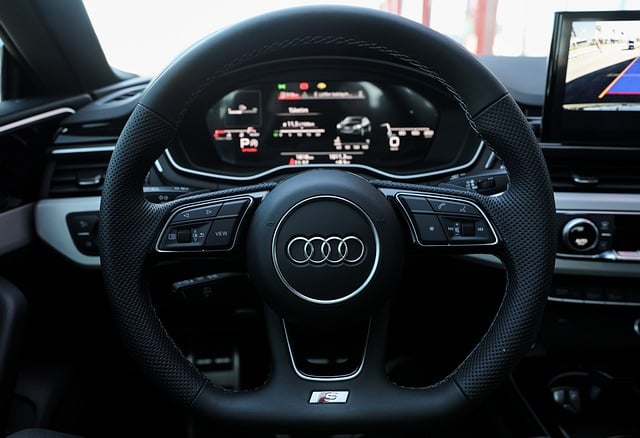“Unraveling the complexities of BMW PCP (Personal Contract Purchase) claims is essential for every vehicle owner in the UK. This comprehensive guide, ‘Understanding BMW PCP Claims,’ equips you with invaluable insights into navigating the UK’s PCP claims process. From demystifying the concept to providing a step-by-step breakdown and offering tips for maximizing your claim, we ensure you’re well-informed. Discover how to leverage best practices to secure the compensation you deserve for your BMW PCP agreement.”
- Understanding BMW PCP Claims: A Comprehensive Guide
- The UK PCP Claims Process: Step-by-Step Breakdown
- Maximizing Your BMW PCP Claim: Tips and Best Practices
Understanding BMW PCP Claims: A Comprehensive Guide

BMW PCP (Personal Contract Purchase) claims can be a complex process, but understanding them is crucial for any owner looking to make a repair or replacement under this popular leasing scheme. PCP claims offer protection against unexpected costs, ensuring that drivers are not left with substantial bills when their vehicle requires maintenance or repairs. In the UK, these claims are governed by specific regulations, providing a framework for both leaseholders and dealerships to follow.
This guide aims to demystify the process, helping owners navigate their rights and responsibilities. Whether you’re dealing with a minor issue or a significant repair, knowing how to initiate and manage a PCP claim can save time and money. We’ll break down the steps involved, from identifying eligible expenses to submitting your claim, ensuring you have a clear understanding of what’s covered and what’s not under your BMW PCP agreement.
The UK PCP Claims Process: Step-by-Step Breakdown

The UK PCP Claims process involves several clear steps to ensure a smooth and efficient resolution for all parties involved. It starts with identifying a valid claim, where individuals or businesses can prove they have suffered a loss due to a breach of contract or an issue with their leased vehicle. Once a claim is identified, the next step is to gather essential documentation, including contracts, invoices, and any evidence of the damage or issue. This stage is crucial for supporting your PCP claims and demonstrating the extent of the problem.
Submitting a formal PCP claim involves contacting your leasing company or the relevant insurer. You’ll need to outline the specifics of your claim, including dates, details of the vehicle, and the nature of the issue. After submission, there’s a period of assessment where the claim is reviewed, and negotiations may commence. This could lead to an agreed settlement or further discussions if initial terms aren’t accepted. Effective communication throughout this process is key to ensuring your PCP claims are handled efficiently in the UK.
Maximizing Your BMW PCP Claim: Tips and Best Practices

Maximizing your BMW PCP (Personal Contract Purchase) claim involves a few strategic steps to ensure you get the best possible outcome. First, review your contract thoroughly; understand the terms and conditions related to maintenance, repairs, and end-of-term options. Many PCP deals come with comprehensive service packages, so make use of these to keep your BMW in top condition. Regular servicing not only prolongs the life of your vehicle but also maintains its value, which is crucial when making a claim.
When it comes to claims, document everything. Keep records of all repairs, maintenance work, and any correspondence with your dealer or finance provider. If you encounter issues with your BMW during the PCP period, promptly notify your provider as many policies have specific timeframes for reporting damage or faults. Additionally, consider the condition of the vehicle when it was taken on PCP; taking good care of it can significantly enhance your claim value.
BMW PCP claims offer a valuable opportunity for owners to secure compensation for unforeseen repairs. By understanding the UK’s PCP claims process and employing best practices, you can maximize your claim, ensuring fair reimbursement for any eligible expenses. Remember, knowledge is power when it comes to navigating these financial aspects of vehicle ownership.
